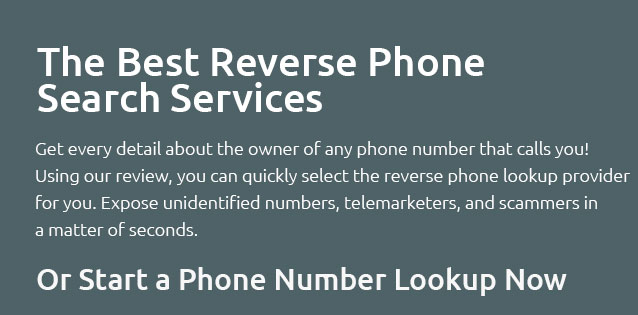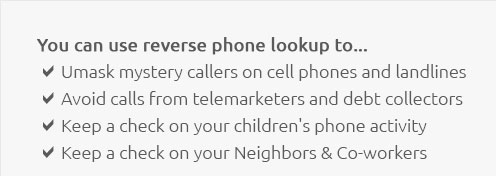 |
 |
|---|
 |
 |
|---|---|
|
|
 |
|
|---|---|
 |
|
 |
|
 |
 |
|---|---|
 |
|
Understanding the Intricacies of Cell Reverse Lookup: A Comprehensive GuideIn today's rapidly evolving digital landscape, the concept of cell reverse lookup has become increasingly relevant, serving as a powerful tool for individuals and businesses alike. As we navigate through the complexities of modern communication, the ability to trace a phone number back to its owner provides both convenience and security. But what exactly is cell reverse lookup, and how can one utilize it effectively? This article delves into these questions, offering insights and practical tips to maximize its benefits while ensuring ethical use. At its core, a cell reverse lookup is a service that allows users to enter a phone number to discover the identity of the person or business associated with it. This can be particularly useful in scenarios ranging from verifying the legitimacy of a caller to reconnecting with a lost contact. In an age where privacy is paramount, it's crucial to understand that while this tool can be incredibly useful, it must be used responsibly and in accordance with legal guidelines. Unauthorized use can lead to ethical dilemmas and potential legal consequences. For those interested in leveraging cell reverse lookup, several best practices can enhance the experience. Firstly, select a reliable service provider. The market is replete with options, but choosing a reputable provider ensures accuracy and protects your data. Look for services with robust privacy policies and positive user reviews. Secondly, always verify the information obtained. While reverse lookup tools are generally reliable, cross-referencing details with other sources can help avoid misinformation. Another important consideration is understanding the limitations of these services. Not all phone numbers are accessible through reverse lookup, as some may be private or unlisted. Additionally, the quality of information may vary depending on the database's comprehensiveness. It's worth noting that while free services are available, they may offer limited data compared to their paid counterparts. Investing in a premium service often yields more accurate and comprehensive results. Ethical use is another cornerstone of employing cell reverse lookup effectively. Use this tool responsibly and for legitimate purposes. Avoid infringing on individuals' privacy or using the information for unlawful activities. As a best practice, always consider the potential impact on the person whose information you are accessing. In conclusion, cell reverse lookup is an invaluable resource in the digital age, offering the ability to uncover identities and enhance communication security. By selecting trustworthy providers, verifying information, understanding limitations, and using the tool ethically, users can harness its full potential while respecting privacy norms. As technology continues to evolve, staying informed and responsible is key to benefiting from such advancements. Embrace this tool wisely, and it can be a powerful ally in navigating the intricate web of modern communication. https://www.businessinsider.com/guides/tech/reverse-phone-lookup
To use the site, simply enter the full 10-digit phone number you want to perform a reverse search on and click Search. https://management.org/free-reverse-phone-lookup
12 Best Paid Reverse Phone Number Lookup Sites - BeenVerified Best Reverse Phone Number Lookup Site Overall - PeopleLooker Best For Quick ... https://www.cbsnews.com/news/reverse-cell-phone-lookup-service-is-free-and-simple/
The simply named Phone Lookup is like the Google of phone lookup Web pages -- just enter the phone number you want to reverse engineer and click Lookup.
|
|---|